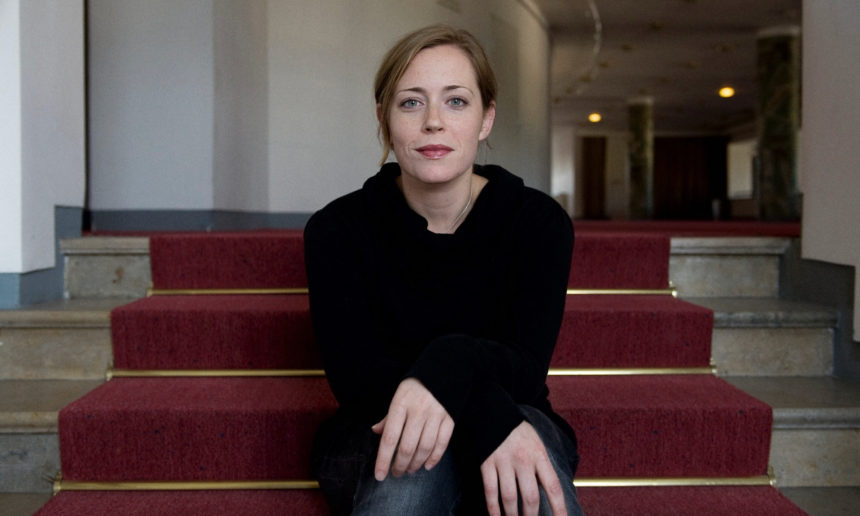Lydia Steier, director who was born in the United States and studied in Berlin. She has built a career as a director based in Europe and this summer she debuts at the Salzburg Festival. Mozart’s “magic flute”, which has been performed many times at the music festival, will create a new production. The music festival is interviewing her concept of directing.
……… SF, 28th December 2017
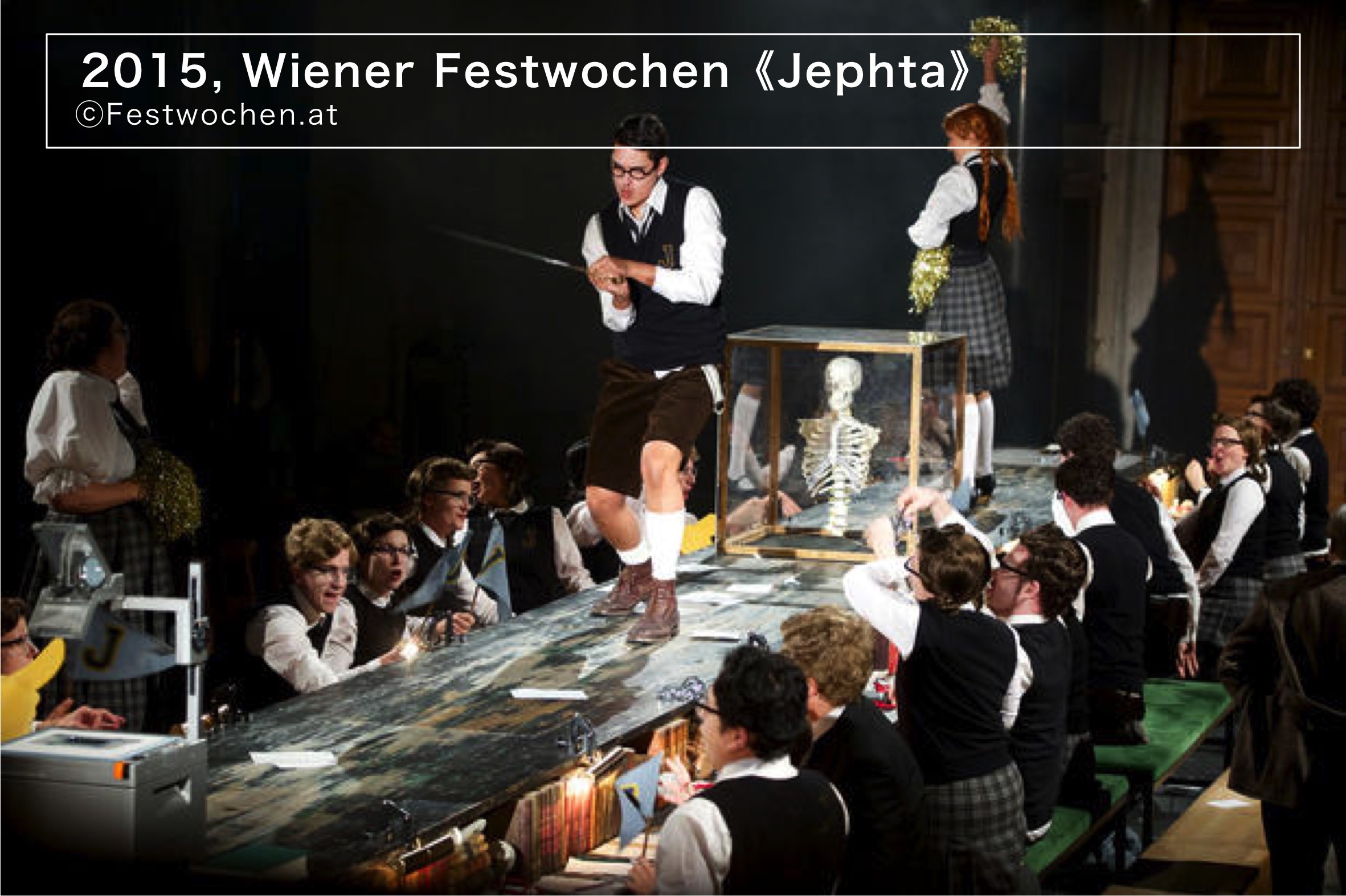
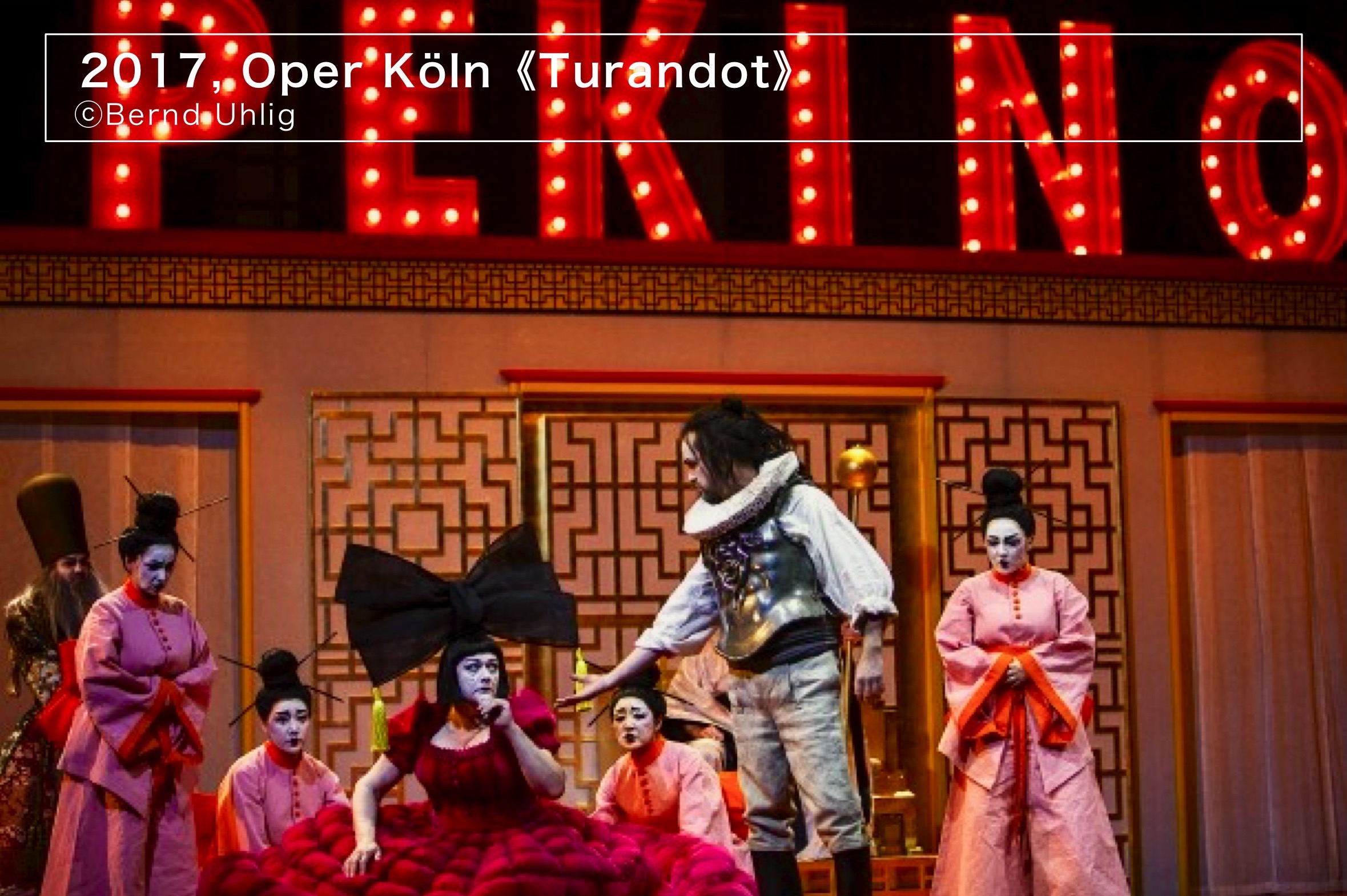
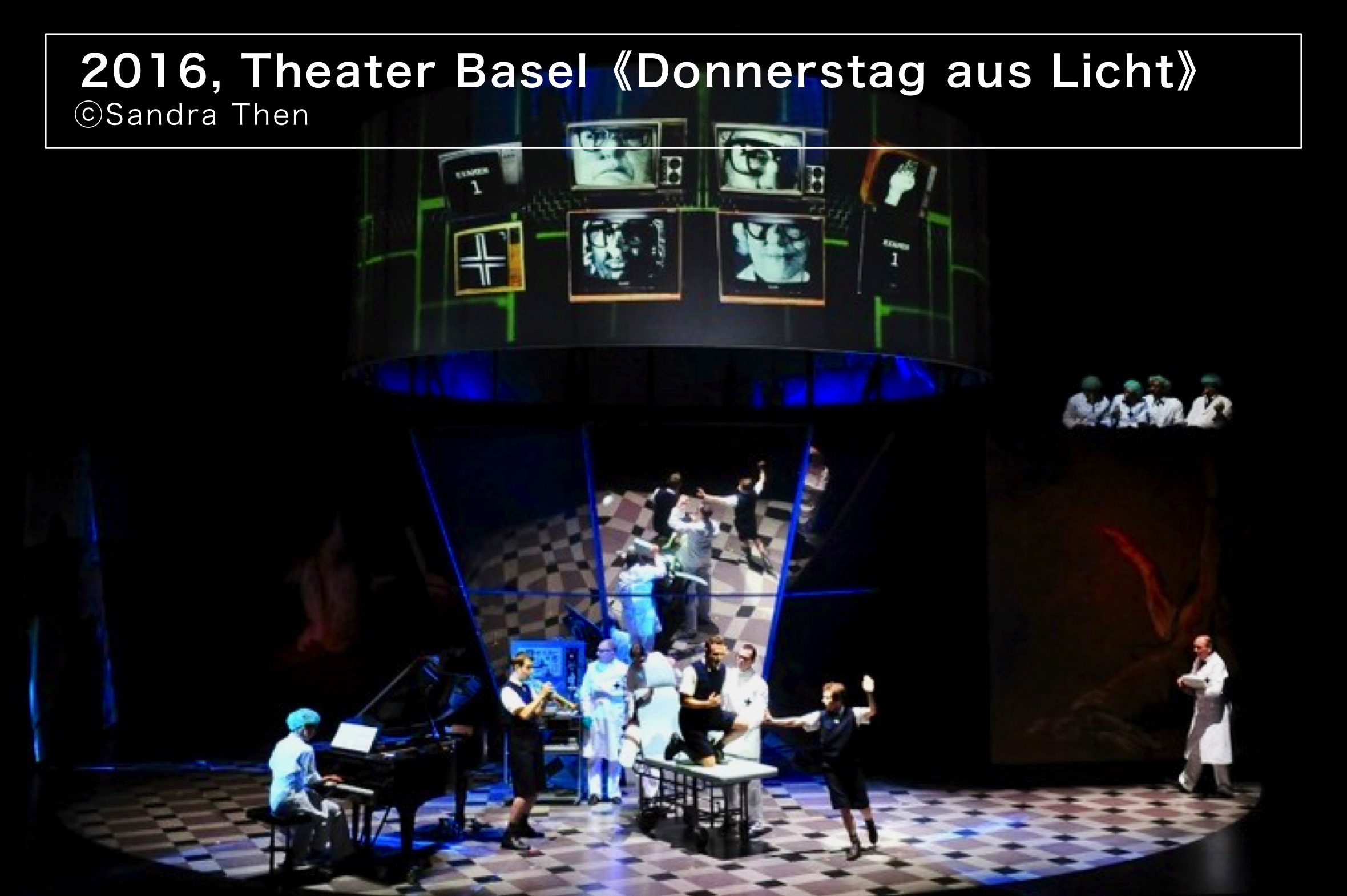
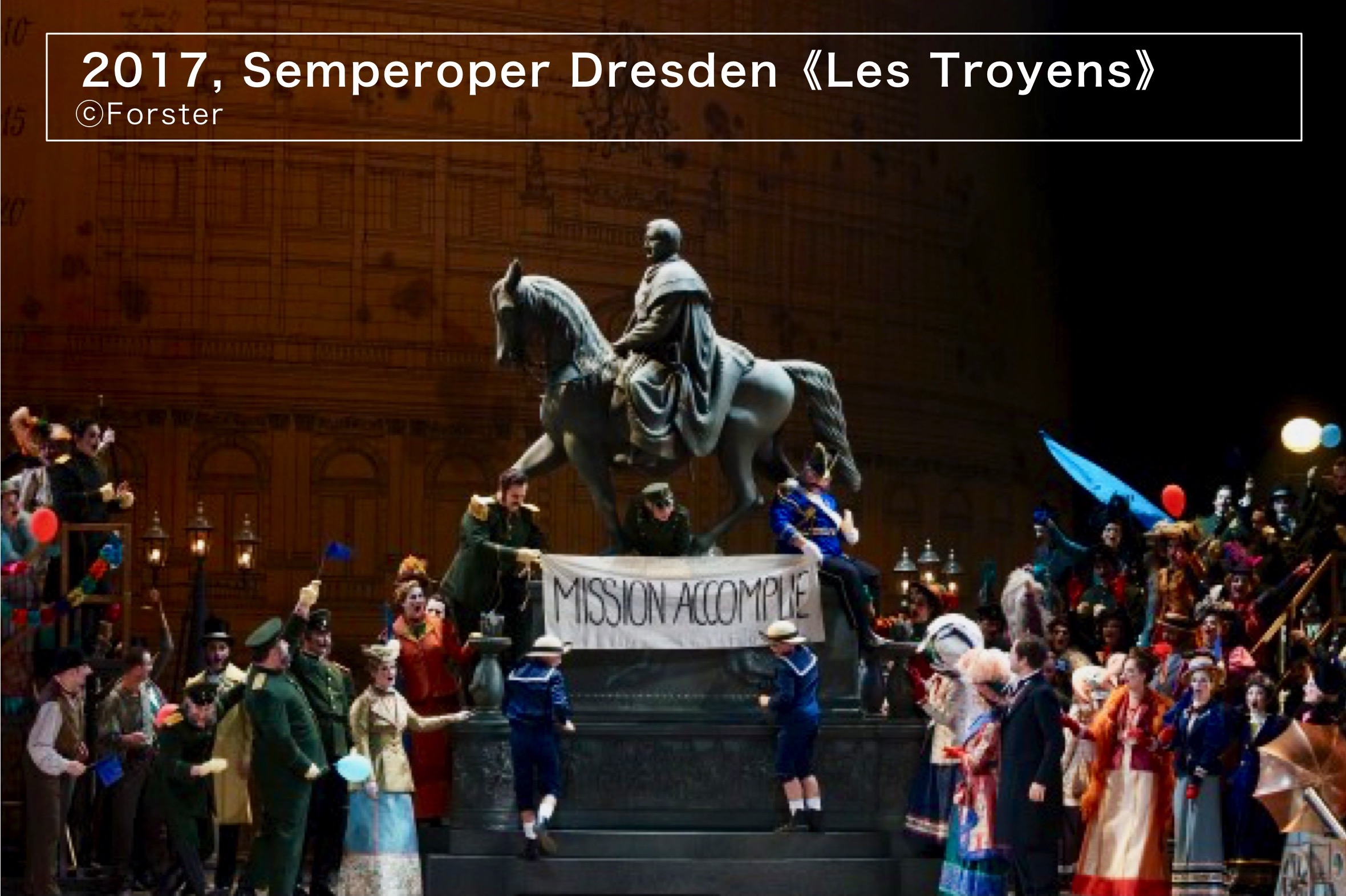
Mozart’s Die Zauberflöte has featured on the Salzburg Festival’s programme 39 times – most recently in 2012 under Nikolaus Harnoncourt. In the summer of 2018 it returns to the Grosses Festspielhaus – under the musical direction of Constantinos Carydis and directed by Lydia Steier, who will be making her debut in Salzburg. Lydia Steier was born in Connecticut and moved to Berlin as a Fulbright scholar in 2002. In 2009 she directed the double bill Der Bajazzo/Turandot in Weimar, for which Deutschlandradio Kultur acclaimed her as the “Discovery of the Year 2009”. Her production of Handel’s Jephtha was seen at the Wiener Festwochen in 2015 and in 2016 Lydia Steier’s interpretation of Stockhausen’s Donnerstag aus Licht at Theater Basel was voted “Production of the Year” in Opernwelt magazine. In this interview Lydia Steier talks about her relationship with Mozart and her approach to directing his opera.
Steier:When I was a child, Mozart was my imaginary friend
Ms. Steier, 2018 sees your directing debut at the Salzburg Festival. What does it mean to you to be here?
It’s a bit like being knighted. After all, I am still a relatively young director. Working here now, working where so many ‘directing gods’ have worked, is a very special honour for me. Some of my friends and colleagues have been here already – for example Stefan Herheim (2003 – Die Entführung aus dem Serail and 2013 – Die Meistersinger von Nürnberg) – and one of my greatest influences also worked here: Jean-Pierre Ponnelle.
You have mentioned a great name, which is invariably connected in Salzburg with Die Zauberflöte. His 1978 production was revived no less than eight times until 1986, making Festival history. To what extent did you study the 38 Salzburg productions of Die Zauberflöte, or what one might call the Salzburg tradition? Do you allow this to influence you in any way?
I take a differentiated view of this: there have been a few ‘hits’, yes, such as Achim Freyer’s or Jean-Pierre Ponnelle’s productions. However, one must not forget that many of these productions failed. That is terrifying. The basic expectation is almost that one will fail, and it would be a huge shock if the production were a success. Let’s say that it is a real risk. However, this risk also presents great possibilities. Let’s face it, it is spectacularly difficult to please everyone with this opera: either it’s too frivolous or too serious or too adult or too childish. Die Zauberflöte is an opera everyone knows and has probably seen multiple times. One could say that the Salzburg tradition is intimidating, but I prefer to see it as a challenge. And that challenge electrifies me and the team to create something especially refreshing and fascinating for the Salzburg audience. So I am looking forward to this summer and Die Zauberflöte.
You have never directed Mozart’s Die Zauberflöte, but you have staged other Mozart operas: La finta giardiniera, La clemenza di Tito and Die Entführung aus dem Serail. What intrigues you about Die Zauberflöte? Is it true that you will tell the opera from a very distinctive perspective?
Indeed, especially because every audience member will probably have seen a whole series of Magic Flute productions. The greatest problem with the productions I have seen so far are the dialogues. They are long – and it is hard to present them without making them seem artificial or even silly. We are so influenced by spoken drama, by films and television, that it is hard to understand these dialogues. That means that one of the first problems I had to solve was the question of what to do with the dialogues. Obviously there is information in the dialogues which must be conveyed, you cannot just cut them. And so after a lot of consideration and experimentation, we arrived at the idea of adding a narrative figure.
How is this narrator integrated into the opera?
From the very beginning, I had in mind a kind of ‘über-narrator’, and eventually developed the idea of having a grandfather tell the story. We are very happy that Bruno Ganz has agreed to take on this role. The conceit is that Die Zauberflöte is told as if in a book of fairy-tales. It is a good-night story for the triplets – the three boys – who are the focus of our story. They are on stage almost the entire time, as is Bruno Ganz as the grandfather; these four figures are very closely interwoven. The children function almost like a proxy for the audience, a kind of fourth wall moving towards the audience. In other words, the grandfather is not telling the audience this story, but his grandchildren, and through them, the story affects the audience with a very different, fairy-tale charm.
Who is writing these texts?
I will write them together with our dramaturge Ina Karr. And of course we will involve Bruno Ganz as well. We are looking forward greatly to this creative process. In which era will your production be set? It was important to us to find a location with some potential to reflect our own times. There is that speech in Hamlet in which the players state that the responsibility of each play is to hold a mirror up to nature, showing each society or time its structure. I believe firmly in that statement. We wanted a moment in history in which one would find parallels with today. A moment of great uncertainty. Today, we have no idea whether war will break out tomorrow, we do not know if our banking system will break down. We live in a time in which we simply don’t know what is about to happen. And so, we found a very abstract parallel in the aesthetic universe of the early 20th century. I was also greatly inspired by the cartoons Little Nemo, published on a weekly basis between 1905 and 1911 in the New York Herald. Every strip depicted the fantastic adventures of little Nemo, a little boy experiencing these adventures in his dreams on the way to Slumberland. How will you and the stage designer Katharina deal with the stage of the Grosses Festspielhaus The stage is huge. It is a challenge. I have seen a few productions in the Grosses Festspielhaus where directors have made the stage smaller. But we want to celebrate its size. Our set is extremely versatile and mobile so that we can emphasise the dream level of the story.
Have you worked with singers from the ensemble before?
Yes, I worked with Mauro Peter when he was still a student – in La finta giardiniera. I really like Mauro and he has enjoyed such an incredible career. I also worked with Geneviève King, who sings the Third Lady, in Mainz already, where she was the female protagonist in my production of Pascal Dusapin’s opera Perelà, uomo di fumo and in Gluck’s Armide. I like her: she has a very strong, occasionally wild stage presence. I saw Adam Plachetka, our Papageno, during the Festival summer of 2016 in Le nozze di Figaro. I was so floored by his portrayal that I insisted on having him as Papageno. He is such a gifted comedian.
You know Markus Hinterhäuser from your collaboration at the Wiener Festwochen in 2015. At the time, your production of George Frideric Handel’s late work Jephtha was a great success. What do you value about your collaboration with the Festival’s Artistic Director?
In fact, Markus Hinterhäuser first asked me during the post-premiere party for Jephtha whether I could imagine directing a Magic Flute. I was not expecting that. But something I admire very much about him is his instincts for who should be doing which project with whom. His talent of recognizing the right constellations is truly rare and special. I trust him and respect him greatly. But I still had to think a long time before I could agree to direct this opera. It’s very easy to fail with this opera. Another interesting detail comes to mind in this context: indirectly, it was Plácido Domingo to whom I owe my presence at the Festival. He was an early supporter of my work; for example, he invited me to direct Lohengrin in Los Angeles in 2010. He and his wife also attended my premiere of Jephtha in Potsdam, which of course increased the interest of critics and colleagues from the field – perhaps also Markus Hinterhäuser … I am looking forward so much to seeing Plácido Domingo again this summer.
It is your first time working with Constantinos Carydis…
Yes, it is indeed our first time working together. Our paths have crossed before, when we both worked at the Komische Oper in Berlin. So we have known each other peripherally for a while. I was also in the audience for his concerts in Salzburg last summer, and in Frankfurt for his Dvořák concerts in the fall of 2016. He manages to make even familiar music sound as if you were hearing the work for the first time. This quality could be so exciting for our Die Zauberflöte – for him in musical terms and for me in terms of the staging. We would like the audience to be surprised, to have the feeling that it is rediscovering the familiar.
You once said in an interview that the movie Amadeus inspired you to be a director. – Please explain! Do you have a special relationship with Mozart?
I first saw that film when I was six years old. From that moment, I was completely transfixed by Mozart’s music and the story of his life. My first CD was the soundtrack for Amadeus. When I was a child Mozart was like an imaginary friend. I lived in a small town in Connecticut. His entire universe fascinated me, the fact that he lived in Salzburg, his travels as a child with his sister through all of Europe. I was really obsessed with this person. However, the actual key moment in the film, the one that made me decide to be a director, is actually one featuring Antonio Salieri. There is a soprano in that scene, singing an aria from his opera Axur. Actually, all she does in this scene is to walk down the stairs. Nothing else. And that was it: that was what I wanted to do! I marched in to my father and told him I would direct operas! And he replied: ‘Why don’t you study singing first, then you might have a better chance of finding a job later.’
And you did, you actually studied singing first and then became a director. – Does that influence your work as a director, the fact that you used to sing?
Singers like clarity on stage and at any given point they should know exactly what is expected on stage – and why. Artists reveal so much of themselves on stage. Anyone without that experience might look past that fact more easily. The director’s goal must be to eliminate all insecurities by giving clear stage instructions. It’s all a question of motivation and navigation.
